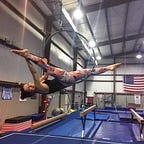Against all odds a scientist without an official training become an Inventor
I might know how you are feeling. It is not fair they way you are treated. You don’t want to compete, learn, challenged and even sometimes, you don’t want to go to work because you had enough. It is hard to be a minority living with discrimination and someone who did not experience that cannot understand you. It is all about frustration and sometimes you feel helpless. The opportunities you want are given to others and somehow you can never get the treatment you deserve from the institutions. Let me tell you a story of an intelligent man who achieved so much in his life with hard work and patience.
Life of Vivien Thomas was extraordinary for sure. Against the odds, as an African American scientist, he conducted multiple studies in order to treat cyanotic heart disease with Dr. Alfred Blalock in 1940ies. These were the times when racial segregation was an immutable fact of life. Considering how minorities, such as African Americans or Hispanic communities, are underrepresented in science community even in 2021, his life must be really difficult in that time. Still, he was working on the heart disease model developments in 1930ies.
Great Depression & Working for Dr. Alfred Blalock
Vivien Thomas was willing to go to collage and medical school but due to the stock market crash in Great depression, he had to change his plans and started to work for Dr. Alfred Blalock.
No official training
He was a high school graduate without any official training to perform surgeries and work in the research of heart surgeries on animal models. He learned on the fire and rose from poverty and racism. As the surgeon was performing the surgery, he was watching to learn, take notes and answer questions to take the research forward. If you have a science or a medical background, you understand very well that the work is tedious, the experiments are very sensitive and fragile; it all takes so much work. It is mind blowing that he figured it all out just by watching and then he developed even his own tools for experiments.
Odds were against him
Although he was doing developmental research and conducting surgeries on dogs, he was getting paid much lower than his skill set, his pay was as much as a janitor. Despite the fact that the quality of the work he was doing was as good as a post-doc researcher.
Thomas had made in the world-famous blue baby procedure, which led to a rift in their relationship. Thomas was absent in official articles about the procedure, as well as in team pictures that included all of the doctors involved in the procedure. As the project become successful and they developed the world famous blue baby procedure, Thomas was not recognized for his contribution and he was not included in the team pictures. It must be a very hurtful experience for him to go through this and was not emotionally or financially recognized for this work. But he did not quit! He continued to do hard good work and he trained surgeons for heart surgery who become chiefs of surgical departments throughout America. Eventually, he and his work had been so valuable; finally, he was institutionally recognized for his amazing work. He retired as Director of Surgical Research Laboratories and his portrait painting hung next to Blalock’s in the the Alfred Blalock Clinical Sciences Building. In 1976 Hopkins awarded him an honorary doctorate and named him an instructor of surgery for the Johns Hopkins School of Medicine.
Final Thoughts
There is so much we can learn from his story. Although the treatment he had seen was so hurtful and unfair, he kept up the good work and fights his way up. Despite the fact that there were multiple obstacles and unfair treatments in his story, he didn’t give up. His skill set was so valuable and hand-on skill was so unique, he become irreplaceable. Although it took him decades to get recognized, he didn’t give up. This is a moment to stop and recognize the work of this amazing scientist and its contribution to the community. In addition, we should not miss the lesson. We learned from this story that we should continue to good hard work with patience even if we are feeling undervalued and discriminated at this point of our life. We might not be appreciated now, but we will be one day in the future. Keeping up good quality work is a way of fighting against racism because I believe success is the biggest revenge.
“Sometimes, I feel discriminated against, but it does not make me angry. It merely astonishes me. How can any deny themselves the pleasure of my company? It’s beyond me.” ― ZORA NEALE HURSTON
Originally published at https://vocal.media.
